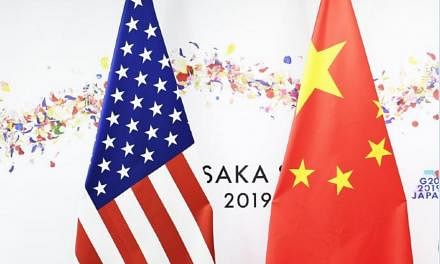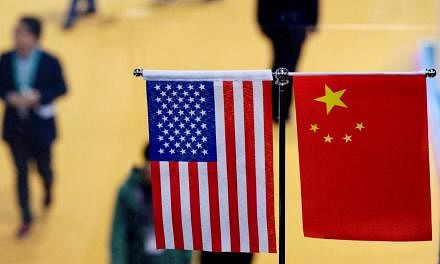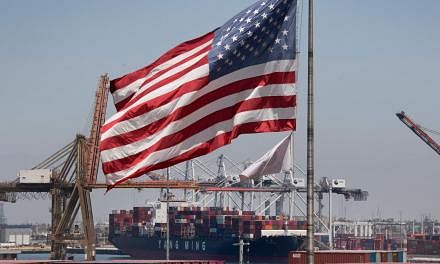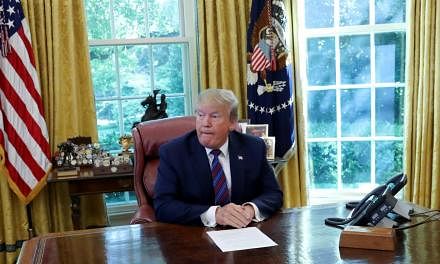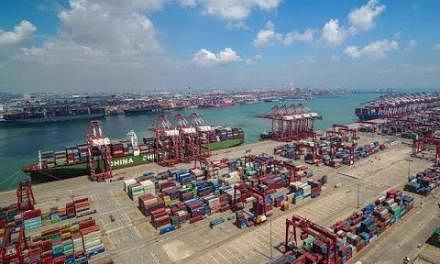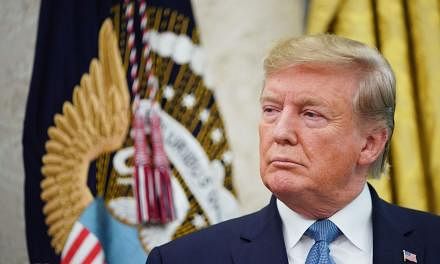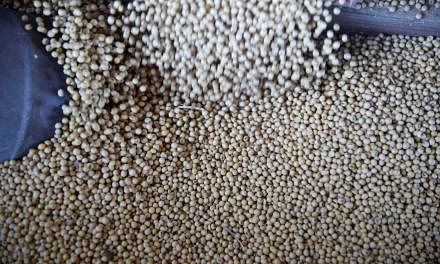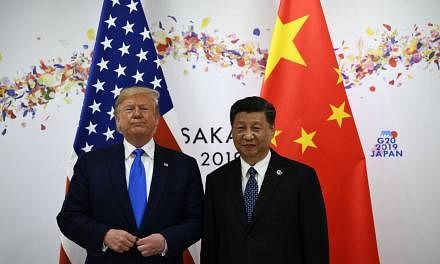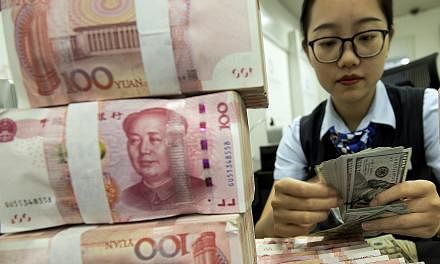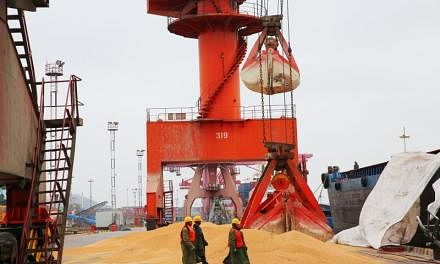SHANGHAI • The US-China tariff slug fest has, for months, triggered warnings that it could impact global economic growth, and recent data indicates that the trade tension is indeed beginning to bite.
Manufacturing gauges in several export-reliant Asian countries, as well as China, weakened last month as gloom deepens over the trade outlook.
China's official Purchasing Managers' Index (PMI), which measures factory activity, came in at 50.2 last month, down from 50.8 the previous month, the latest sign of weakness in the world's second-largest economy amid the trade war and a domestic debt problem.
But China's troubles are bad for the rest of the region, and the world, analysts said.
Across Asia, exporters from South Korea to Malaysia saw PMI decreases last month, according to indices compiled by Nikkei/IHS Markit.
Taiwan saw its steepest falls in production and new business in just over three years, purchasing activity by companies fell for the first time since May 2016, and firms anticipate lower factory output in the next 12 months, Nikkei/IHS Markit said.
"Taiwan is feeling the effects of this trade war because China is the factory for many companies in Taiwan. When the estuary is blocked, you feel the effects," said Dr Sun Ming-te of the Taiwan Institute of Economic Research.
South Korea's PMI slipped to 51 last month, from 51.3 in September, while a separate Korean business sentiment index for manufacturing sank to its lowest level in two years. China is South Korea's largest trading partner, absorbing a quarter of Korean exports.
South-east Asian manufacturers were feeling the effects too, with PMI in Malaysia and Thailand slipping below the 50-point level, which indicates contraction in the sector. It was Malaysia's lowest PMI since July and Thailand's lowest in two years.
In a recent interview, Malaysian Prime Minister Mahathir Mohamad complained that United States President Donald Trump - who has accused various trading partners of "ripping off" America - "seems to be withdrawing from all commitments overseas".
Tun Dr Mahathir said this hurts everyone, including the US.
"We want to remain friendly with the US, and we want to continue trading with the US," he said. "But the trade war that is going on between the US and China is damaging for us. We have to pay a price for that."
Singapore's manufacturing outlook also continued to darken, with PMI dipping by 0.5 point to 51.9 last month, continuing its decline from the previous month.
The International Monetary Fund warned at its annual meeting last month that the trade friction and other threats would hobble the world economy, lowering its growth forecasts for this year and the next.
The euro zone posted disappointing PMI figures last month, though due largely to factors other than trade tension. But not everyone is feeling the shock yet, with Japan's manufacturing looking solid last month.
Mr Trump, meanwhile, faces little pressure to tame his trade rhetoric at home, with a rosy US outlook marked by rising wages and low unemployment.
Even in Asia, there will be some winners as conflict realigns trading patterns, economists noted.
Vietnam, in particular, looks to gain as foreign manufacturers relocate out of China to escape the trade war crossfire and what many say is an increasingly unfair playing field for foreign companies in China.
Vietnam's PMI climbed from a 10-month low of 51.5 in September to 53.9 last month.
"The hard data on exports and industrial production in recent months hasn't been that great. The latest survey nonetheless shows how Vietnam is weathering the US-China trade war better than its Asean peers," said Mr Miguel Chanco, a senior economist at Pantheon Macroeconomics.
"If the trade war escalates, Vietnam will be one of the prime destinations for export-oriented firms looking to move out of China."
AGENCE FRANCE-PRESSE
